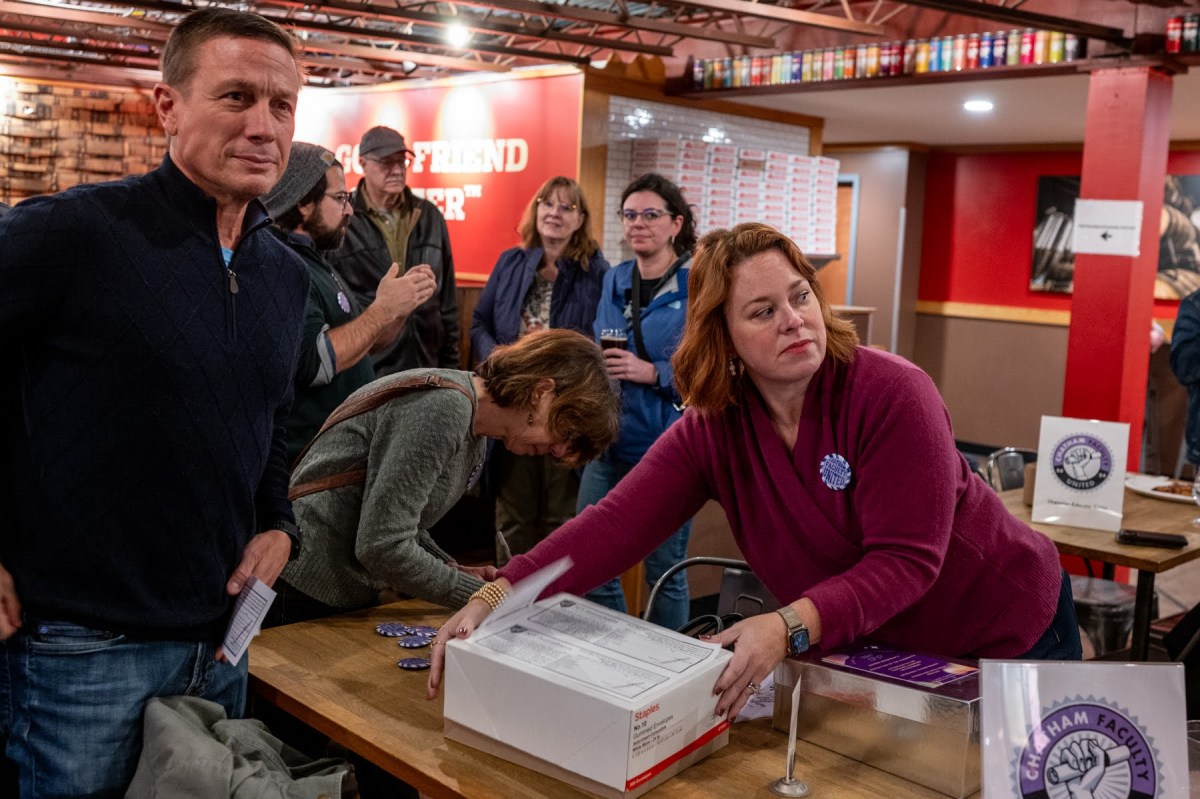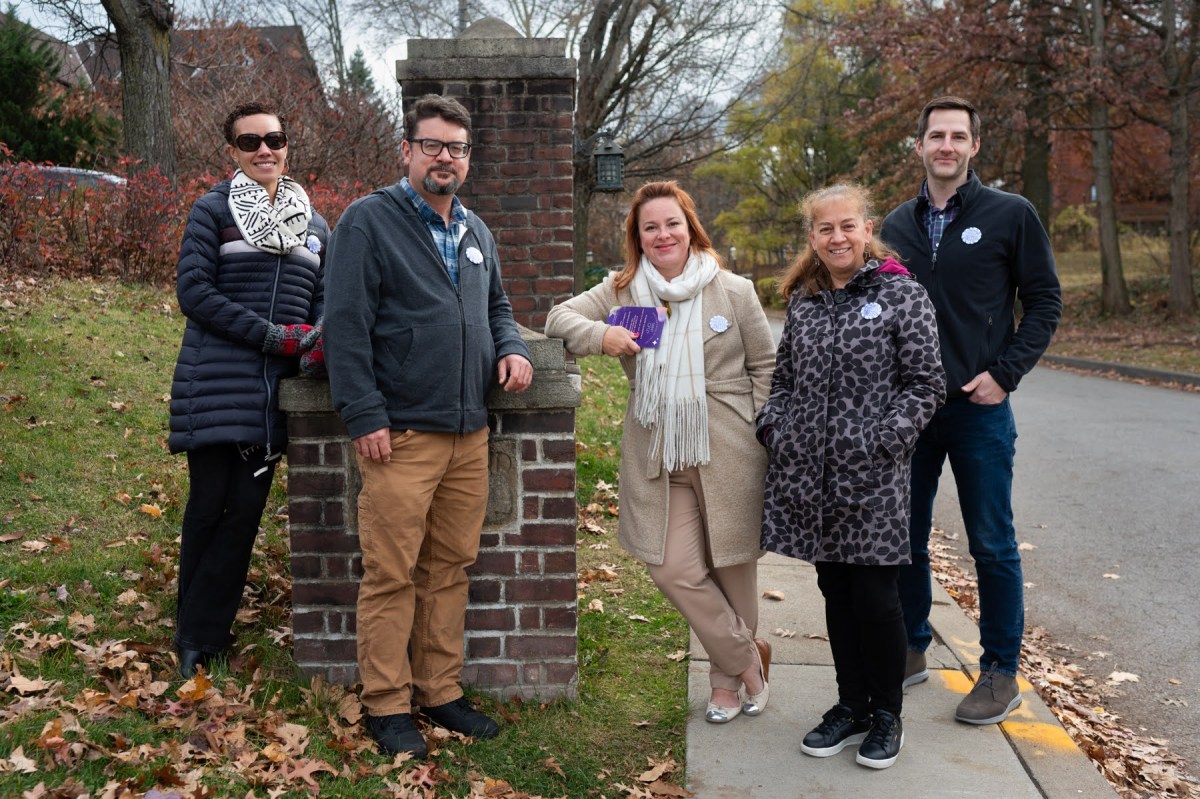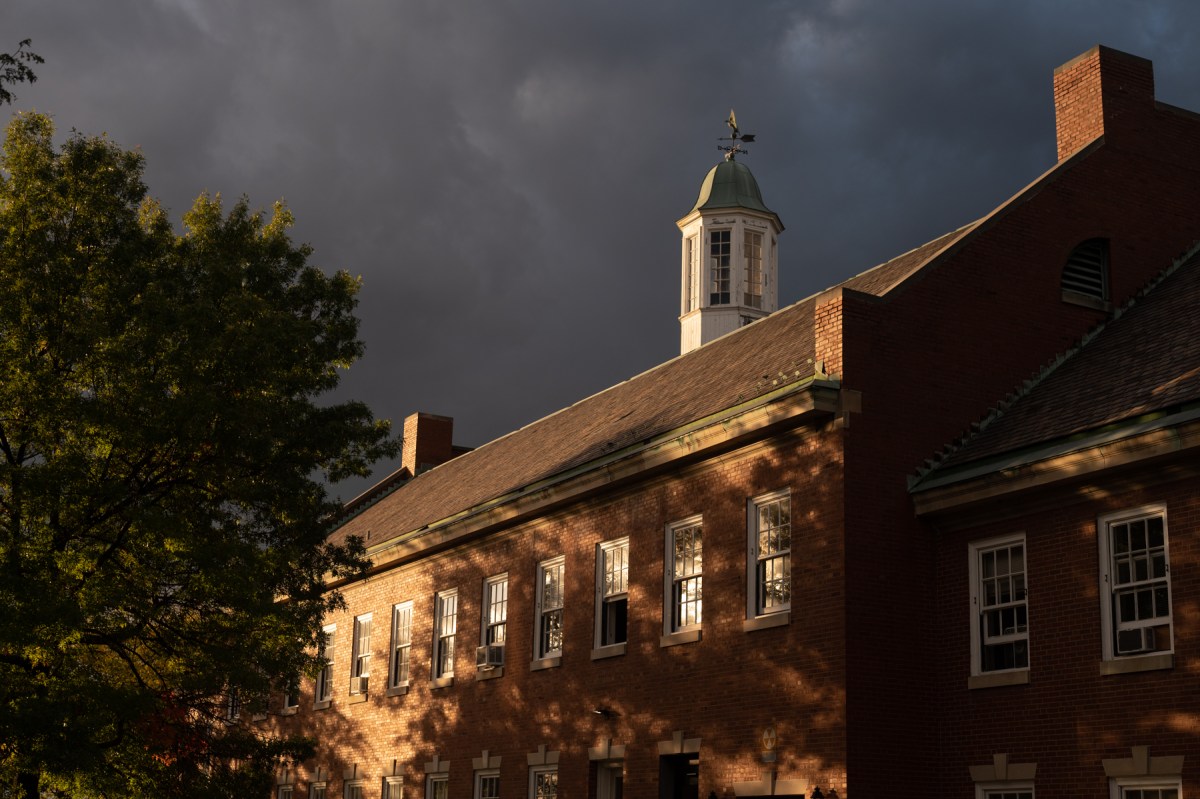Local leaders joined roughly 45 Chatham University faculty on Thursday evening to formally advance a union organizing effort that began this fall after the university made a series of cuts to trim a multimillion-dollar deficit.
The faculty met at Larimer’s East End Brewing Company to sign cards declaring their intent to unionize. If at least 30% of the university’s roughly 135 full-time faculty sign them, the National Labor Relations Board will hold an election. Chatham also has the option to voluntarily recognize a union, without an election, if there’s evidence that a majority of faculty want representation.
About half of the full-time faculty had signed cards by Friday morning, an organizer told PublicSource. Roughly a third of the faculty were present at Thursday’s event.
The event – graced by Pittsburgh Mayor Ed Gainey and Allegheny County Executive Sara Innamorato – was one step forward in what could be a lengthy process. If successful, the faculty will be a local of AFT Pennsylvania.
“This is a really exciting night for us. We’ve been working up to this point for many months now,” said Jessie Ramey, an associate professor and organizer with Chatham Faculty United. “We’ve been working really hard with our faculty colleagues to make sure that everybody feels like they are a part of what we’re doing.”
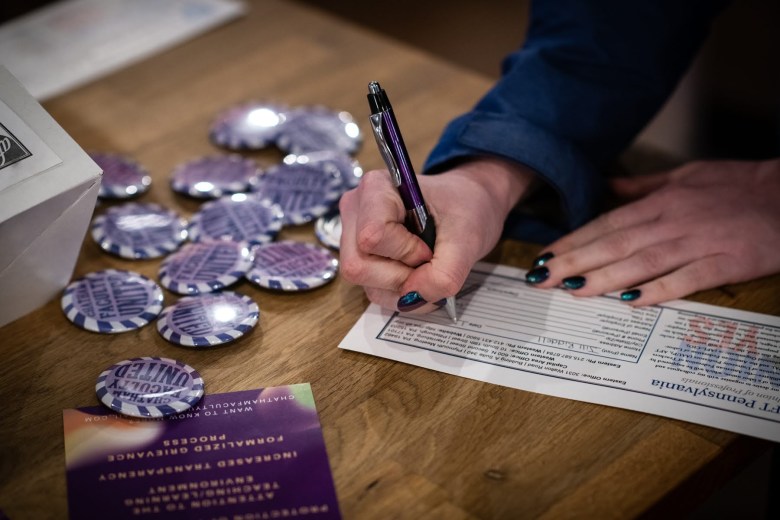
The event was organized by Chatham Faculty United, which is seeking to achieve unionization for the full-time faculty. The group believes that unionization will allow faculty to have greater influence in university governance; protect their pay and benefits; and benefit from a formalized grievance process.
Chatham cut faculty compensation to trim its deficit. Now, some faculty want to unionize.
This summer, Chatham reduced faculty benefits and cut some salaries to trim its deficit, which the university has said stands at $6 million. Professors told PublicSource in November that the university’s response to the deficit renewed a previously simmering interest in unionizing and “really underscored how powerless we are.”
Much of the organizers’ work so far has focused on connecting with faculty and explaining the benefits they believe a union could bring. Jennie Sweet-Cushman, an associate professor and organizer said the group will visit Chatham’s three campuses after Thursday to ensure all interested faculty can sign cards. The organizers will contact the National Labor Relations Board soon, she added.
“We’re hoping to have a really strong showing with the cards so that we can make that case for voluntary recognition,” Sweet-Cushman said. “We would really love it if that happened. Nobody wants this to be a contentious thing. Nobody feels like the university should be spending money trying to fight it.”
Bill Campbell, a spokesperson for the university, did not provide comment on the union effort to PublicSource by press time, and did not say whether the university would voluntarily recognize a union.
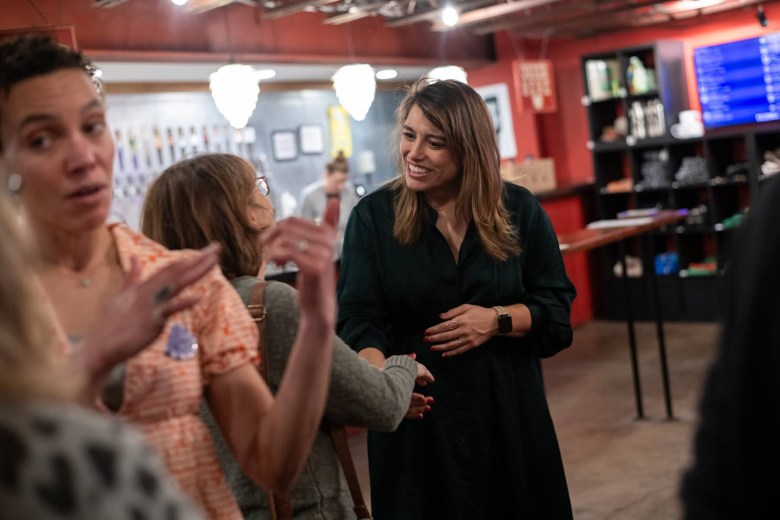
Gainey said in an interview during the event that his administration would like to write a letter to the university’s Board of Trustees stating that unionization is “for the best interests of not only the school but the city.”
“I’ve said from day one, if you want to make the quality of your workplace better, it’s important that you’re able to collectively bargain,” the mayor said. “A lot of times what happens is, we don’t listen to our frontline employees. When you have a union, you don’t have a choice.”
‘We were all blindsided’: Chatham University faces multimillion-dollar budget hole, lays off staff, cuts benefits
Innamorato also voiced support for the nascent union effort. “We need to make sure that the people who make institutions like Chatham great are taken care of,” she said. Councilor Erika Strassburger, who represents Squirrel Hill where Chatham is located, also attended.
The union effort, if it advances, may be more challenging for the faculty than for workers in other industries. A decades-old decision from the U.S. Supreme Court determined that full-time faculty members at the private Yeshiva University were managerial employees; the case has made unionization very difficult for similar faculty at private universities.
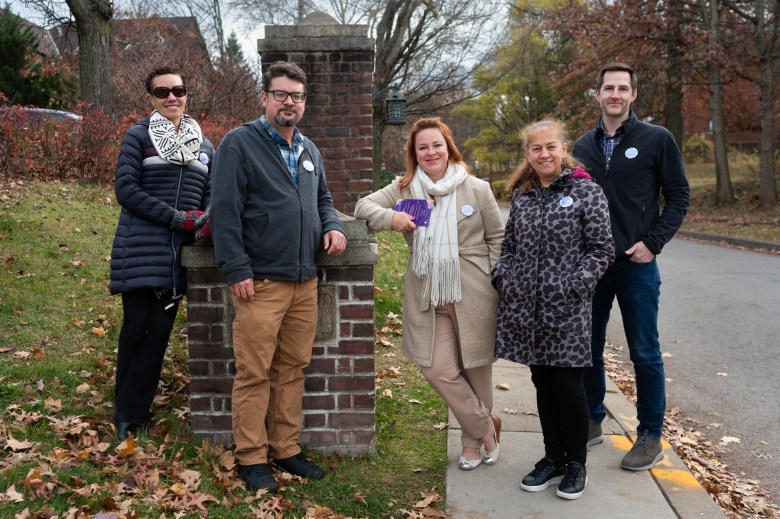
A more recent ruling from the National Labor Relations Board, however, offered standards for determining whether faculty are managerial employees. A local victory that followed this ruling bodes well for the group. Full-time faculty at the private Point Park University reached their first tentative agreement on a union contract in 2017.
Sweet-Cushman said the organizers have met with labor attorneys and feel strongly that they would not be considered managerial employees under the ruling.
The organizers are optimistic that their effort will be successful. But regardless of the outcome, they’re committed to serving as “a forum where faculty can build community,” Sweet-Cushman said.
“Our work doesn’t end,” she said. “We’re eager to keep building those bonds and being supportive for our colleagues.”
This story was updated on Jan. 26 at 9:55 a.m. to reflect a final count of the cards signed during the event.
Emma Folts covers higher education at PublicSource, in partnership with Open Campus. She can be reached at emma@publicsource.org.

